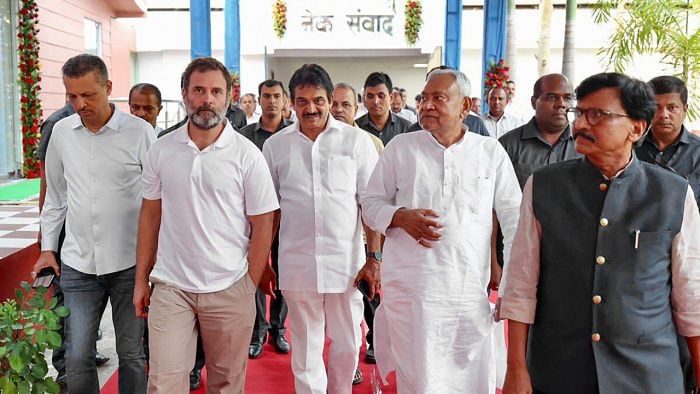
The meeting of leaders of 15 opposition parties in Patna on Friday was the first major attempt to present a united front against the BJP in the coming Lok Sabha elections. The elections are about a year away and the leaders are hopeful of creating a common platform to present an ideological, political and electoral challenge to the Narendra Modi government and the BJP. The Opposition has been encouraged by the emphatic victory of the Congress in the Karnataka election last month and the party’s victory in Himachal Pradesh before that. They consider the coming elections as crucial and posing an existential threat to them because, as some of them put it, “there will be no elections in future” and “democracy will not survive” if the present government comes back to power in 2024. That has given them a special sense of urgency and purpose.
Democracy needs change and the aspiration of the opposition parties to dethrone the BJP government is natural and legitimate. Any party that entrenches itself in power for long periods could consider itself irreplaceable and become autocratic. The increasing social strife in the country and growing repression in various ways has been cited by the Opposition as creating an environment that makes it necessary for them to sink their differences and pose a united front against the government. They believe they can put the government on the defensive and confront it on bread-and-butter issues and other problems that affect the lives of common people. The parties together have 11 state governments and have a substantial share of votes. Some of them have very popular leaders and strategists with experience in campaigns and administration. All this gives them considerable strength to pose a challenge to the BJP.
But they have serious challenges before them. None of their leaders is a match to Prime Minister Modi in popular appeal. Some of them lack credibility and appeal. The government has control over the State, its institutions, and even most of the media. The BJP has a formidable election machinery. The chemistry of an alliance of political parties is more important than its arithmetic. There are internal contradictions among most parties and leaders. The issues that figure in a national election are different from the issues in an Assembly election. The parties will have to present an agenda to the people that will go beyond opposition to Narendra Modi and the BJP. Most importantly, they will have to convince the people that they will stay together and present good and effective governance to the country if they come to power. It is going to be a long road, and the next stop is Shimla.